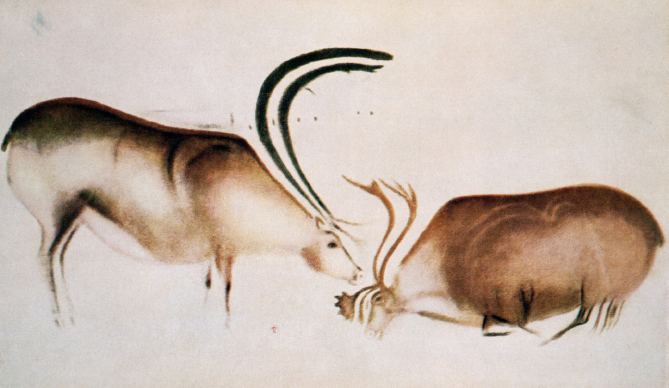| 1-5 | | Artistic Expression in the Paleolithic Era |
| Cave Painting of a Male and Female Deer (ca. 13,000 B.C.E.) |
Even though writing was not invented until the late fourth millennium B.C.E., humans had been expressing themselves for thousands of years through artwork. Archaeologists think the earliest surviving paintings in caves date to 30,000 years ago, but body art may have been practiced even earlier. This cave painting of a large male deer and a smaller female deer was discovered in southwestern France in 1901. The subject suggests the importance of animals in Paleolithic society and culture, at the same time that it reveals something of Paleolithic social norms. As you examine it, think about what it tells you about the artist’s views on gender roles. What qualities did the artist see as essentially male? What qualities did the artist see as essentially female?

READING AND DISCUSSION QUESTIONS
- How did the artist see the relationship between the male and female deer? How did the composition of the painting help express that relationship?
- What does the painting tell us about the society in which it was created?